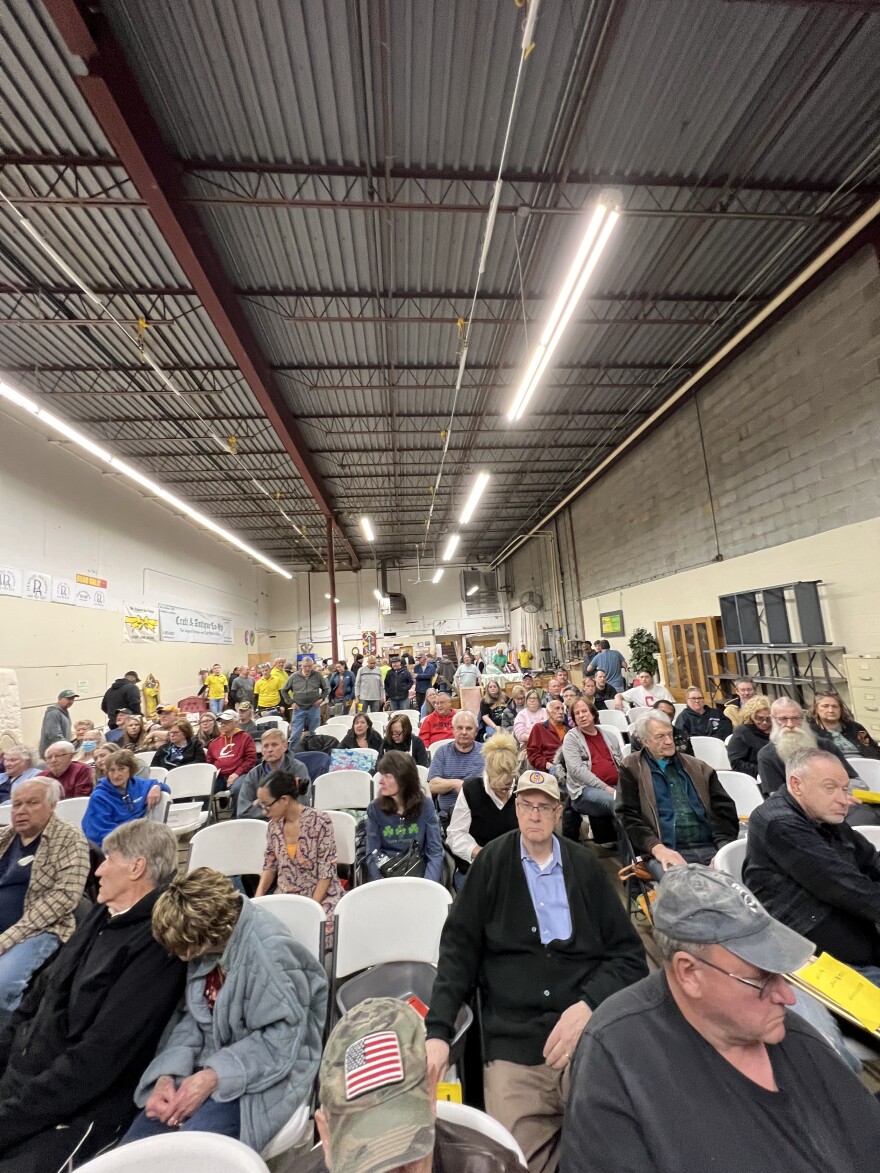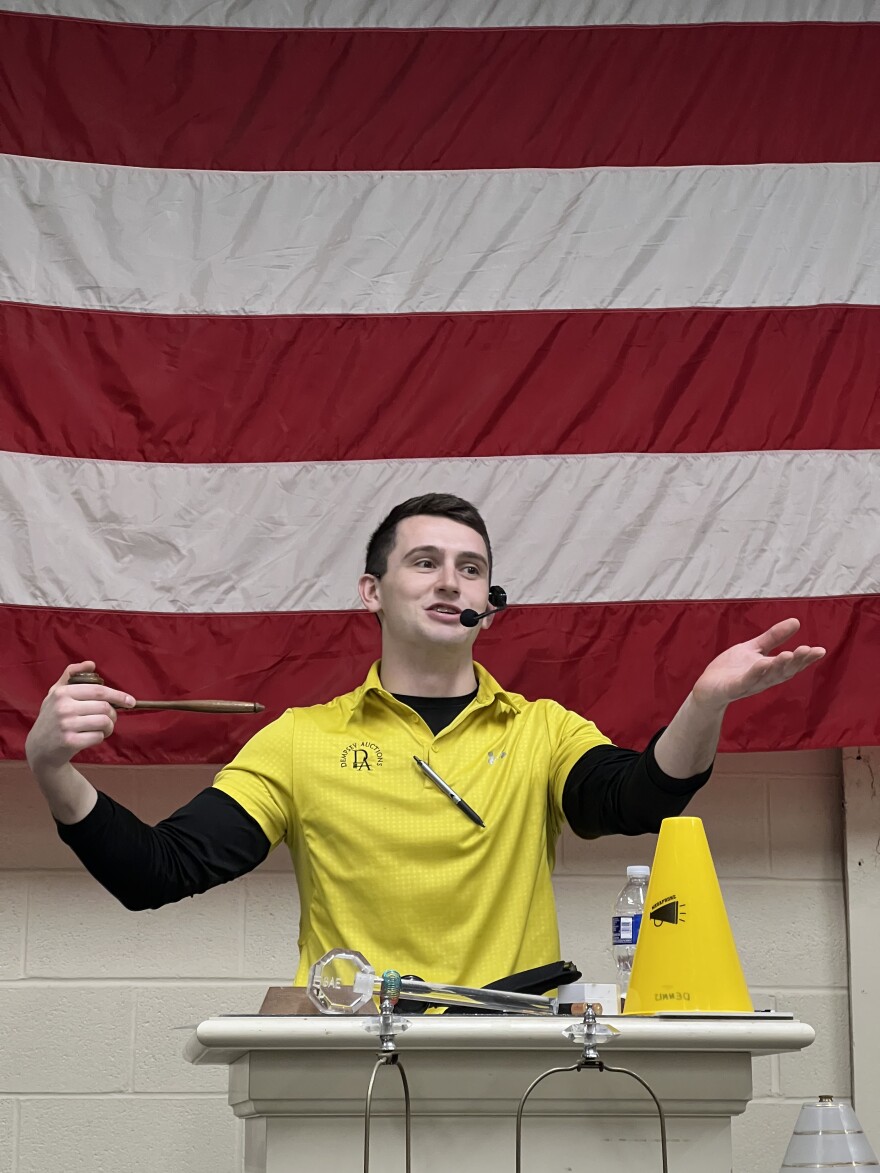Bustling flea markets, fat newspaper classified ad sections and exciting in-person auctions — whether bidding for repossessed property down at the sheriff’s sale or calling out diamonds for debutants up on high street — once defined the resale market.

The secondary market — where anything owned, bought, found or gifted is turned for a profit — is now as global as it is local thanks to the interconnectivity of the internet.
And the market is big.
82% of Americans buy and sell secondhand goods, and the majority prefer to use online marketplaces as opposed to in-store options, according to internet marketplace OfferUp’s 2022 Recommerce Report.
Sustainability, saving money and scarcity, coupled with the ease of today’s technology, fuel the resale zeitgeist that industry experts say is bullish for at least the next three years.
“People have come to understand that we can no longer continue to consume and throw things away and export our waste overseas,” said Diane Bickett, former executive director for the Cuyahoga County Solid Waste District and founder of Eco Speaks CLE, a local environmental podcast.
“When everyone was at home in 2020, mindfully, carefully cleaning out, donating and reselling within their own communities, working with businesses like Humble Design Cleveland, Rebuilders Exchange and Upcycle Parts Shop to keep secondhand, local goods in a circular economy, we showed that the secondary market works,” Bickett said.
Secondhand Love: Good for the Economy, Good for the Planet and Good for the Soul
Whether buying hands-on or sight unseen “recommerce,” say those who are steeped in the secondhand market, satisfies an unrelenting penchant for buyers for that pleasant shock of recognition when finding unexpected, nostalgic treasure, in today’s parlance, known as, ‘the come up.’
Today’s secondhand marketplace has been shaped by the tumultuous technological change that took place in the late 20th century, for everything from Picassos to paper clips.
“The secondary market for art and antiques was changed entirely in the late 1990s by eBay and (other) online auctions,” said Bridget McWilliams of Bridget McWilliams Appraisals in Gates Mills. Those changes reverberate today.
“The sheer volume of information currently available online regarding secondary market items is overwhelming, but at the same time, ease of access to research information for both buyers and sellers has leveled the playing field somewhat. Still, one has to know what they are looking at and nothing can replace hands-on experience and a good eye,” McWilliams said.
The pandemic has made an impact on the secondhand market, too.
Two years into the pandemic, in 2022, Goodwill Industries began aggregating the best of the stuff local neighbors donate to their stores across the United States on a national auction site. Where once local shoppers could buy their neighbors' donated goods at the corner Goodwill Store, now they must compete for them nationally. Some treasure still makes it into local stores, but competition there also has become more fierce.

There are so many places to buy and sell. Many are familiar with Facebook Marketplace, where anyone with a Facebook account can sell or buy. There are specialty online fashion resale marketplaces like Poshmark.com, along with china and furniture resellers like Replacements.com and Chairish.com. Secondhand goods are exchanged worldwide via networks formed through the Buy Nothing Project, where payment is not required. And, of course, there are local bricks-and-mortar options, such as the Upcycle Parts Shop in the St. Clair Superior neighborhood, Krazy Binz in Mentor/Parma, Where Ya Bin in Solon, Taylor’s More 4 Less in East Cleveland and Jubilee Auto Sales in Kirtland.
The secondary market scene is vibrant in Northeast Ohio. Competition continues to grow across the region for secondhand goods at all price levels.
The biggest influence driving the growth, say those in the business, is that the customer base for local sellers is now global.
“Mrs. Murphy next door now can sell a piece of crocheted Irish lace to a friend down the street or to a contemporary Chinese grandmother in Shenzhen, China – and vice versa – through myriad online and clicks-and-mortar marketplaces,” said David Novak, owner of Jubilee Auto Sales in Kirtland.
Novak, 39, a musician, artist and inventor from Newbury, augments his income selling used vehicles via Facebook Marketplace from his car lot on Route 6 in Kirtland. His company gets previously owned vehicles from regional auctions, where buyers compete with other licensed used car dealers for inventory.
In addition to cars, art is big on the secondary market. Rachel Davis, founder of Rachel Davis Fine Arts in Cleveland, has handled the resale of some of the country’s most prestigious collections of American fine art, prints and sculpture for 40 years. She works in a warehouse near the popular West 78th Street Studios complex in the Detroit-Shoreway neighborhood.

Davis, who has been in the business for four decades, said one of the most common misconceptions she hears from potential clients is that they have an overinflated opinion of the value of their items because they see them listed for a certain price on online sites.
“People say, ‘Well, I found it on the internet, it’s worth X’,” she said. “Well, you gotta understand all the different sites, where they’re coming from and how they’re selling. Just because you see a certain price … it’s not what you may realistically get for it within a reasonable amount of time.”
The price depends on timing and demand.
“Fair market value is a realistic value, if you put a piece at auction, in the right setting, doing the proper advertising, what you might realize, any given day, with a willing buyer and a willing seller; and it changes day to day,” she said.


Richard Taylor, owner of secondhand shop Taylor’s More 4 Less in East Cleveland, has pivoted from selling new furniture to selling used furniture and from sourcing used furniture from estates to acquiring it from regional live auctions. Inside Taylor’s More 4 Less, where Taylor has run the used furniture store for 17 years, the business continues to evolve.
“We get customers from as far away as Berea,” Taylor said, attributing their visits to his Facebook Marketplace advertising for used, scratch-and-dent, extremely clean furniture in great condition, as well as new framed art prints and small collectibles.
“There is a lot of hope happening in East Cleveland,” he said, “Cleveland Metroparks just took over Forest Hills Park and a lot of development is coming up Euclid Avenue. The community is strong.”
The Ties That Bind
There is perhaps no stronger community bond than family. The Dempsey family, with Dennis Dempsey at the helm, has built a bursting-at-the-beams live auction business — Dempsey Auctions in Painesville — with the help of estate referrals from the Lake County Probate Court and word of mouth, Dennis Dempsey said.
On auction nights for 11 years, almost every Thursday, there could be up to seven Dempsey family members on site, ready to serve hundreds of treasure hunters packing the 7,000-square-foot auction hall to bid on everything from coins to cars, fine jewelry to furniture and tools to tractors.

Dennis Dempsey, a United States Army Veteran of Operation Desert Storm and Operation Desert Shield, runs the show. Dempsey’s mom presides over concessions. His son Alex is also a licensed auctioneer. Brother Doug is, too. They take over the auction calling at times, too. “My wife, son and I run the main part of the estate business organizing the clean outs, Dempsey said. “It’s really a small, family-run business performing a community service.”

And the business on the secondary market seems to be getting bigger each year, with industry experts in an optimistic mood. ThredUP, an online apparel resale marketplace expects the U.S. secondhand apparel market to double by 2026, to $82 billion.
McWilliams said, “As time continues to pass, more and more information comes online, allowing instant access. I am also hopeful that people will be more cognizant that buying on the secondary market is sustainable. Beauty and quality are worth saving. Giving older, better pieces another go-round is better for the environment and looks cooler.
“Purchasing new, mass produced, commercial furnishings and art that seems cheap and looks fairly good doesn’t pay off in the end. In two years you won’t be able to sell it and you will likely end up throwing it away.”




